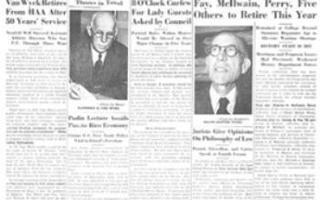On Tuesday, almost all of Boston’s school bus drivers went on strike, walking off their jobs in protest of, among other things, what they called unaddressed complaints about their union contract.
The workers cited many complaints about Veolia, the multinational transportation corporation which the City of Boston recently contracted to manage the Boston Public School buses. School bus drivers have long been represented by a contract with United Steelworkers. The union has filed complaints with the National Labor Relations Board that Veolia has not followed the union contract with respect to benefits and payroll procedures, and has also instituted other policies that make bus drivers’ jobs more difficult. Workers say that the government shutdown last week, which shut the NLRB and indefinitely delayed the union’s legal grievances, was the impetus for Tuesday’s walkout.
We do not want to comment on the workers’ grievances or whether the strike was justified—those concerns are better addressed by union members and managers who know more about the situation. However, we are very concerned that this strike was carried out with an egregious lack of concern for its impact on students and parents.
Workers go on strike when they don’t feel their demands are being met by less drastic means. To be sure, actions are more effective when they disrupt business as usual. Nonetheless, the manner in which this strike was carried out caused great harm to the community. Because the strike was unannounced, no parents had warning that school buses wouldn’t be coming, causing stress and worry. Many families struggled to send their children to school, and 16 percent of students didn’t come to school at all—three times the number of absences on an average school day. Moreover, the inconvenience of either finding alternative transportation to school or staying home with stranded children disproportionately affects working-class and poor families. Parents with cars, stay-at-home parents, or parents who can simply call in late to their jobs can more easily transport their children to school via other means. But families with only one parent or in which both parents work, and families that live in Boston’s lower-income communities underserved by public transportation, faced the brunt of stress and disruption last Tuesday.
Many of the strike’s detrimental effects to the city of Boston could have been avoided by informing community members of the strike beforehand, or, better yet, working with parents, students, and teachers to organize an action that had the support of the community before it took place.
The union that represents Boston’s school bus drivers, United Steelworkers, did not sanction this strike; in fact, union officials were some of the first to call for striking drivers to get back to work. This wildcat strike cost the city of Boston tens of thousands of dollars, as well as untold hardship for local families. If the drivers’ grievances are legitimate, then they should seek recourse with their union through legally sanctioned means.
Read more in Opinion
Not So FastRecommended Articles
-
The Coal WarA S SUMMER RECEDES from the British Isles, the six-month old coal strike lumbers on with no end in sight.
-
Strikes Mounting on Umpires
-
Harvard Security Guards Say They Are Willing To StrikeOver 200 Harvard security guards signed a petition affirming that they are willing to strike if key issues are not resolved.
-
Students Weigh in on Security Guard Threat To StrikeWith the likelihood of a strike by Harvard security guards increasing, the student body is voicing mixed reactions: while some students say the strike would leave them feeling vulnerable, others say that it would not affect their daily life.
-
Security Guards Agree on Concrete DealHarvard Security guards reached a tentative contract agreement on Thursday with their employer Securitas.
-
 Harvard Professors "Spread Good Will and Learning to All Lands"
Harvard Professors "Spread Good Will and Learning to All Lands"













